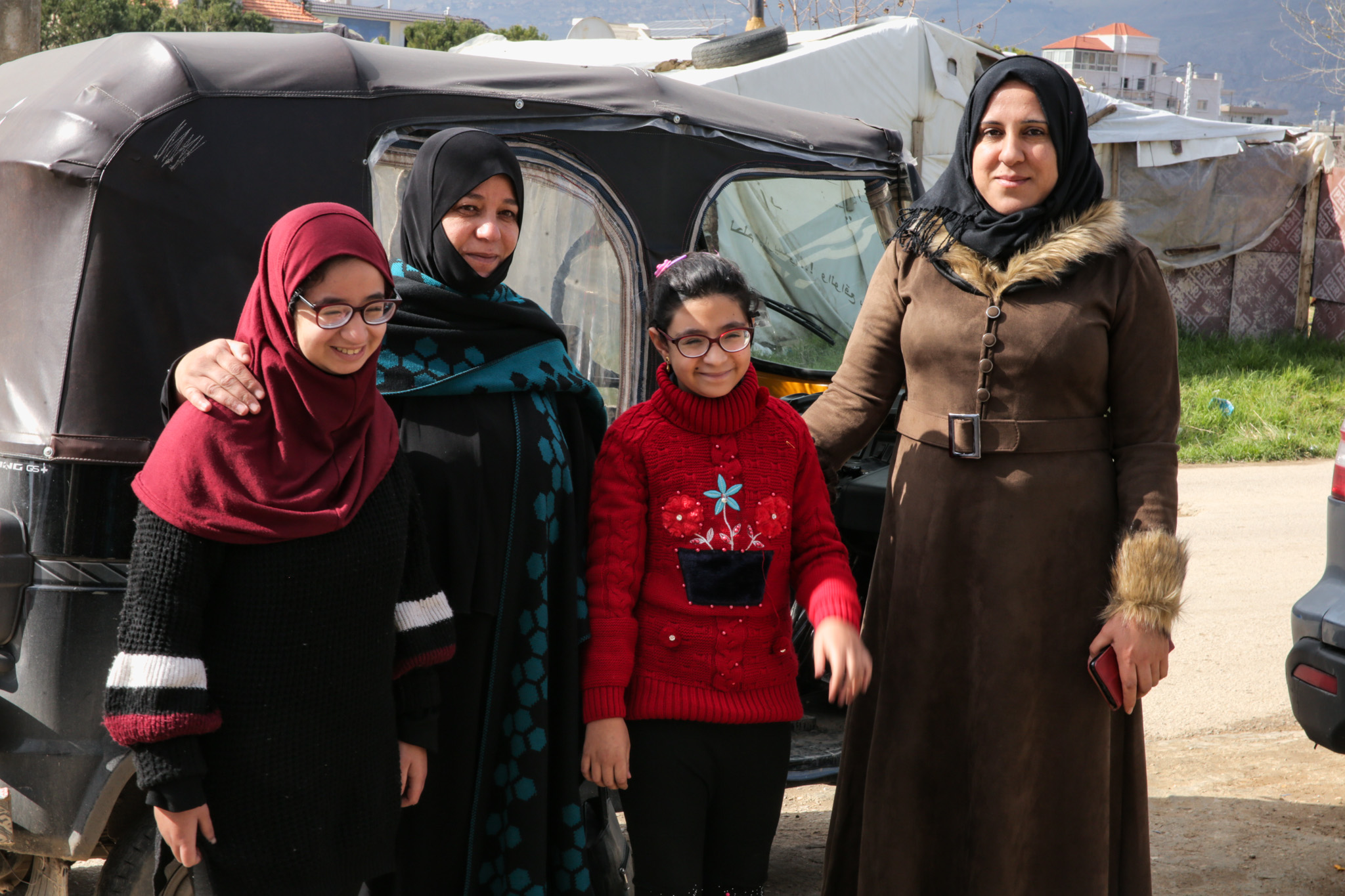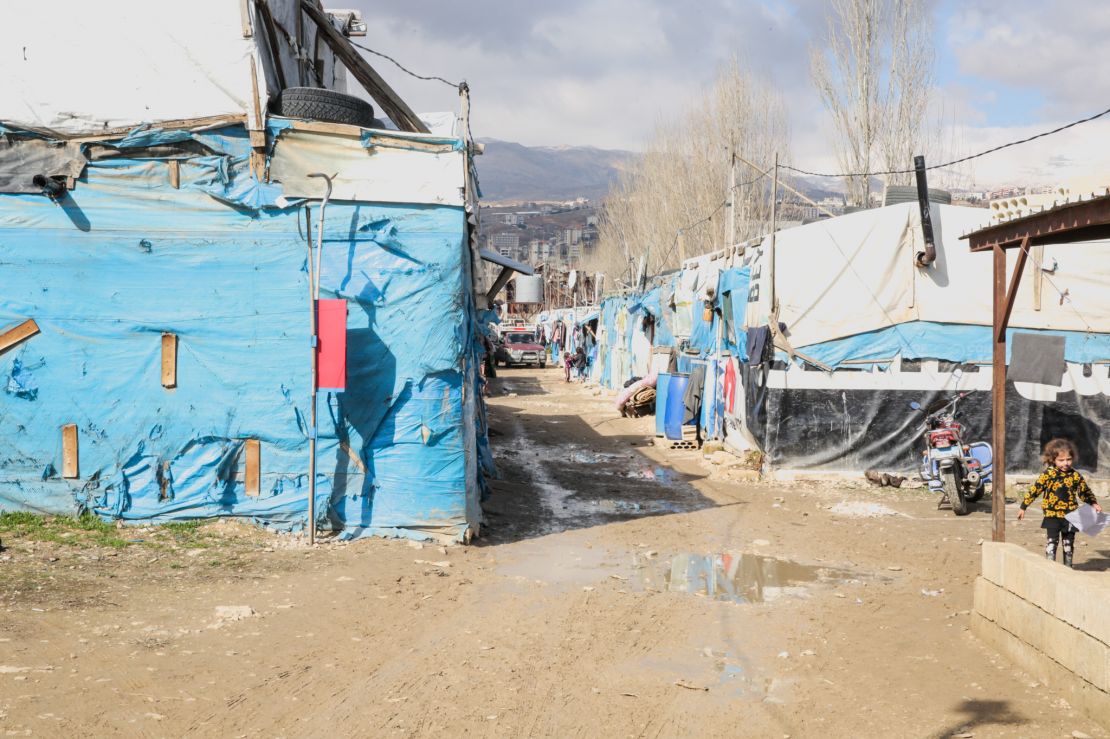share

Ibtisam, Aicha and Hoda, three group user representatives of the Mousawat rehabilitation centre. | © Fine Line Agency- H.I.
Aicha, Hoda and Ibtisam are three of the twelve group user representatives at the Mousawat rehabilitation centre in Central Beqaa - Lebanon.
They explain how their daily activities make a difference to themselves and how they feel empowered to provide support to the most vulnerable populations in the refugee camps.
Mousawat Rehabilitation Centre is located in the Central Beqaa region of Lebanon, just a few hundred meters away from some large refugee camps, home to mainly Syrian refugees. Most of the people living in these camps have been here since the beginning of the Syrian crisis, more than 10 years ago. Living conditions are very basic and security is permanent issue.
Handicap International (HI) has been working in partnership with the Mousawat Rehabilitation Centre since 2017. In this centre, psychosocial workers work together with rehabilitation specialists. Every week, the multi-disciplinary team meets to discuss cases. Children with disabilities have access to comprehensive rehabilitation treatment, including physiotherapy, occupational therapy, speech therapy and psychosocial support.
HI provides expertise, delivers specific training to the staff and supplies material and equipment. The programme has also provided some additional funding to enable the centre to increase its capacity.
As well as delivering daily rehabilitation sessions, the centre’s staff has identified and trained what it calls “user group representatives”. These user group representatives are parents (mostly mothers) of the children who come to the Mousawat centre for rehabilitation sessions. These parents have decided to work as volunteers, disseminating information and carrying out awareness raising initiatives in the surrounding refugee camps.
Aicha, Hoda and Ibtisam are 3 of the 12 group representatives trained at the Mousawat centre. "As user group representatives, we feel empowered to play a role in society. This gives us energy”, they said.
Aicha is 37 years old. She is a Syrian refugee and the mother of six children. Three of her children (aged 12, 14 and 17) have cerebral palsy. They all attend rehabilitation sessions at the Mousawat centre. Aicha found out about the centre from a taxi driver.
Hoda is 49 years old. She is also a Syrian refugee and the mother of seven children. Three of her children (aged 11, 17 and 24) have cerebral palsy. They are all having regular sessions at the centre and making good progress. Hada was told about the Mousawat centre by the mobile clinic team (team of 7 people).
Ibtisam is 40 years old. She is a Palestinian refugee and the mother of three children. Due to a lack of oxygen at birth, one of her children has cerebral palsy. Ibtisam heard about the Mousawat centre from some women in her neighbourhood.
 The three women attended numerous information sessions at the Mousawat centre and in the refugee camps (delivered by HI directly at the early stages of the Syrian crisis).
The three women attended numerous information sessions at the Mousawat centre and in the refugee camps (delivered by HI directly at the early stages of the Syrian crisis).
These information sessions had a very positive impact on their lives, making them feel much stronger as parents of children with disabilities and empowering them to provide support to other parents and children in their refugee communities.
After a while, they started to organise sessions in the refugee camps themselves. Today (early 2023), they try to run one session a week, with a group of around 10 people each time. They cover a range of subjects, with basic information about the most common types of disabilities, a strong focus on disability rights, a presentation of the Mousawat Rehabilitation Centre, Q&A, etc.
They have begun to see some real differences in their respective communities in the way people are talking to and interacting with persons with disabilities. Taboos and bullying behaviour are gradually evolving towards more respect and increased inclusion.
Organising these information and awareness-raising sessions has been very motivating for the three women who now feel that they have a role to play in society and can have a real impact on people lives. It also allows them to meet many new people and extend their networks within the refugee camps.
 With the many crises affecting Lebanon today, the three group representatives all feel that the situation in the refugee camps is deteriorating month after month. The financial challenges are enormous, the supply of water and electricity is no longer guaranteed, security is a permanent concern and the lack of medicines (and their affordability) only makes matters worse.
With the many crises affecting Lebanon today, the three group representatives all feel that the situation in the refugee camps is deteriorating month after month. The financial challenges are enormous, the supply of water and electricity is no longer guaranteed, security is a permanent concern and the lack of medicines (and their affordability) only makes matters worse.
In this context, they have a long list of hopes for the future.
Aicha tells us, “We hope that the Mousawat centre will remain open in the coming years. We all love this place, especially as it offers all the services our children need in the same building. Before the centre opened, it was a challenge to find all the different sessions we needed and it was financially impossible for most of us to attend them all. Besides that, the centre gives us energy and support as mothers”.
Hoda continues, “My hope is that some special or inclusive schools will open for my three children with cerebral palsy. At the moment, there are no adapted schools in the entire region of central Beqaa. I have no choice but to keep them at home all day. This situation is worrying me a lot”.








HI is an independent and impartial aid organisation working in situations of poverty and exclusion, conflict and disaster. We work alongside people with disabilities and vulnerable populations, taking action and bearing witness in order to respond to their essential needs, improve their living conditions and promote respect for their dignity and fundamental rights.
HI is an independent and impartial aid organisation working in situations of poverty and exclusion, conflict and disaster. We work alongside people with disabilities and vulnerable populations, taking action and bearing witness in order to respond to their essential needs, improve their living conditions and promote respect for their dignity and fundamental rights.